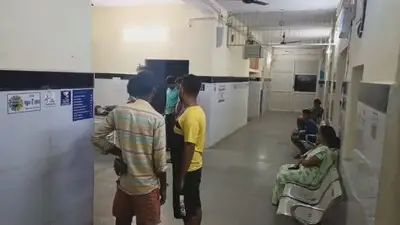Recommended Stories
Bhubaneswar: Ten long years have elapsed since South Korean steel major Posco had signed an agreement with the State government to establish a 12-million tonne per annum steel plant in Jagatsinghpur district.
At an estimated cost of Rs 52,0000 crore then, the project represented the single-largest inflow of foreign direct investment in India. However, a decade later, the project is yet to take off despite the fact that the company brought down the scale of the plant to 8-mtpa after the land promised was reduced to almost half. But even that scaled down plant remains a pipe dream till now. In fact, there are clear doubts that the project might not take off at all.
After problems related to land acquisition for the project, Posco now faces mines issues for its proposed plant. With the approval of Parliament for the Mines and Minerals Development and Regulation (Amendment) Bill earlier this year, the doors seem to have been shut on Posco's mega steel project. The amended portions of the Act state that allotment of mines would be done solely through auctions rather than the prevailing system of preferential allotment.
The South Korean company, which was lured to Odisha on the promise of allotment of iron mines on a preferential basis, is not likely to go through the auction to secure iron ore for its project. Source said the company is in no mood to push up the cost of the project substantially while matching with bids in a potentially stiff competition.
The State had recommended the Centre for grant of a prospecting licence to Posco for the Khandadhar iron ore mine prior to the amendment. Posco has already paid for 545 acre of the 2,700 acre that Idco has acquired for the first phase of the project.
Billed as the largest FDI in India, the project might be like any other big project for the Centre and State, but the villagers of Dhinkia in Jagatsingpur district who lost their land with a promise of job in the proposed plant, are now left with nothing except a mere one-time monetary compensation from the government.
The village, which once had hit newspaper headlines across the globe, now wears a deserted look. With no ongoing construction work or activities at the camp office of the South Korean company, the village is like a barren land.
Few months ago, at least the land-owners had something to do to feed their families. But after acres of beetle vine yards were razed, they have no option but to sit idle at home.
More painful is the paltry compensation paid by the State government against their land. “For how many days we will run our families with this small amount?” asked a farmer who had lost 2 acre of land where he was growing beetle for years.
“Education of children and health issues of our parents are now the biggest challenge for us and there is nobody to hear us. Will the government give back our land so that we can resume our age-old vine yard,” he asked.
The scenario is same in all the periphery villages where acres land have been acquired for the project. With no work in their area to earn livelihood, the life of all the land-losers has become miserable.









